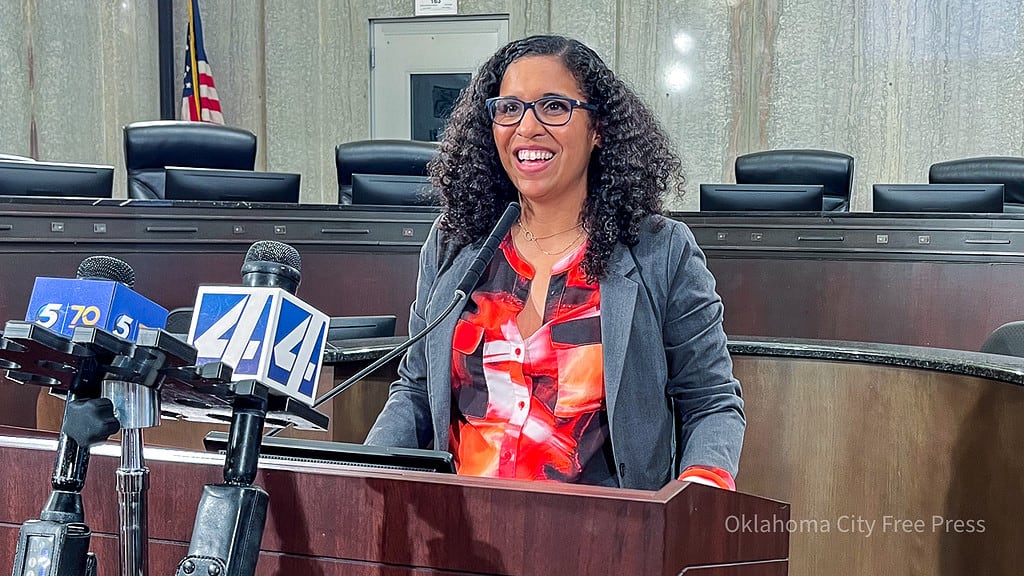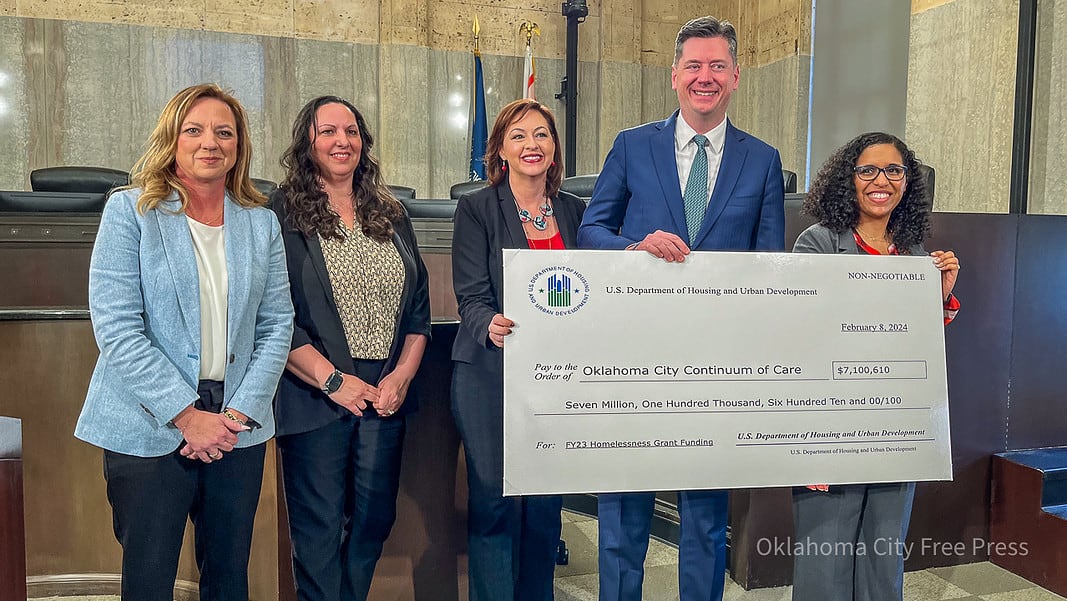Last Updated on March 24, 2024, 2:15 AM | Published: March 24, 2024
OKLAHOMA CITY — In February, the City of Oklahoma City was presented with the largest single allotment of federal Housing and Urban Development funds in OKC history when HUD approved $7.1 million to be used for housing efforts through the city’s Key to Home Partnership.
Through a more organized and collaborative approach than ever before seen across city services and homeless outreach providers, the Key to Home Partnership has already celebrated some significant successes in homelessness reduction and rehousing efforts in just the past year.
HUD took note of those successes when granting approval of all the proposed funding for which the city applied for 2024 housing operations, including substantial funding for some existing programs as well as some entirely new plans.
“It’s significant, because it’s not normal for a community to be awarded funding for all the things that they requested,” said Jamie Caves, communications manager for the Key to Home Partnership. “This is the largest increase that city staff can remember in their collective history. So that is exciting.”
Increase
Though the $7.1 million total of HUD funding represents the largest dollar amount ever granted to OKC for housing efforts, that number is decidedly not the amount of new or increased funding the city is receiving for 2024.
A majority of that amount – roughly $6 million of the total – is a continuation of previous years’ funding, representing the ongoing costs of staffing and operating the various services and providers throughout the Key to Home Partnership.
It’s the first rapid rehousing project that we’ve had in the city, and it’s for families.
Jamie Caves
The actual funding increase is still significant and still the largest that the city has seen, but is only a fraction of the $7.1 million total.
“The increase is actually $1,015,699,” Caves explained, noting that the added amount is intended to enhance funding for some existing programs through an “expansion grant” and to provide an allocation for one entirely new effort to be overseen by City Rescue Mission and Hope Community Services.
“The new grant is really exciting,” Caves said. “It’s the first rapid rehousing project that we’ve had in the city, and it’s for families. We’ve seen a real increase in family homelessness, so they created this intervention to focus specifically on families.”
Key to Home success
HUD’s approval of all the city’s requested funding is something of a validation and acknowledgement of Key to Home Partnership’s successes thus far.
As the first officially organized and coordinated effort to address rising homelessness in OKC, Key to Home has brought together more than 40 providers across city services, non-profit outreach groups, and private donors in the largest public/private partnership the city has ever seen on the issue.
The partnership’s organizational structure and focus on defined roles for the various providers and services has ramped up the speed and efficiency of city housing efforts, with the Encampment Rehousing Initiative – moving people directly from street encampments into housing – showing particular success.
“We really launched that initiative in September 2023, and we’ve housed 101 people directly from the streets so far,” Caves said. “We have a goal of housing 500 people by the end of 2025.”
Both the successes and clear, ambitious goals of the partnership resonated with HUD officials in their determination of city funding, leading to the eventual approval of all requested funding for OKC in 2024.
“The people that we’ve worked with, such as HUD Regional Administrator Candace Valenzuela, have said this is a direct response to the work that we’ve been doing,” Caves said. “I think that is a great accolade.”

Future funding
One of the most anticipated added benefits of this funding approval is the expectation that this amount will continue to carry over into subsequent years, as Key to Home continues to address still-rising homelessness numbers.
“Once you get a bump, you can usually expect to continue to get that bump next year as well,” Caves explained. “It’s never guaranteed, but when that money increases, it is typical that, as long as the programs are functioning well and performing well, then that funding will typically continue year after year.”
However, as homelessness rates continue to rise, even $7 million will not be enough to solve or stem the issue, so Key to Home leaders are hopeful that HUD’s increased funding allocation and faith in the programs can encourage the partnership’s private donors to increase their funding as well.
“It’s great, but It needs to be more,” Caves said. “But it will absolutely increase the amount of people that we can serve, and I think anytime we can move one family off the streets and out of a shelter, that is a victory.”
Brett Fieldcamp has been covering arts, entertainment, news, housing, and culture in Oklahoma for nearly 15 years, writing for several local and state publications. He’s also a musician and songwriter and holds a certification as Specialist of Spirits from The Society of Wine Educators.










